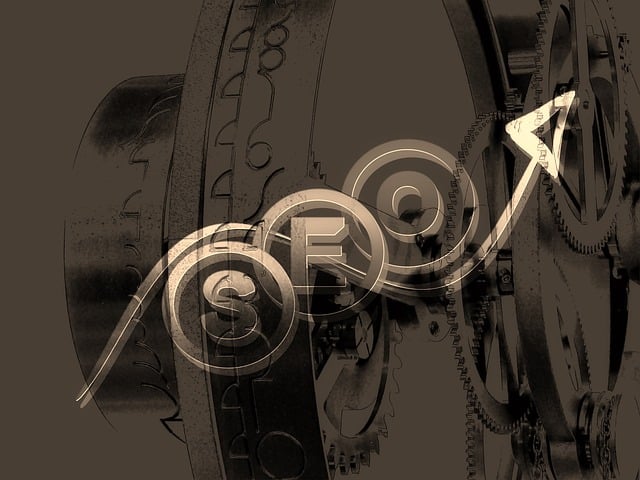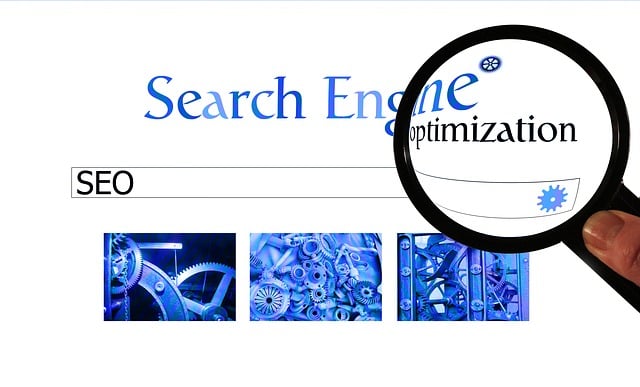Online retailers can achieve e-commerce success by implementing Search Engine Optimization (SEO) strategies, focusing on keyword research, on-page optimization, mobile responsiveness, and high-quality content. Choosing a specialized SEO Agency for E-commerce Websites leverages expert knowledge in optimizing search rankings, driving organic traffic, and boosting conversion rates. Key services include keyword research using advanced tools, on-page SEO optimizations like product title and description improvements, technical optimizations for fast loading times and mobile responsiveness, and tracking KPIs to ensure effective strategies.
In the dynamic realm of e-commerce, success hinges on a complex interplay between user experience and search engine optimization (SEO). As online retailers compete for visibility amidst a bustling digital landscape, understanding fundamental SEO principles becomes paramount. This article guides online businesses through crucial aspects of e-commerce SEO, from keyword research to technical optimizations, offering insights into why partnering with a dedicated SEO Agency for E-commerce Websites is a strategic move towards dominating search results and driving conversions.
Understanding E-commerce SEO: The Basics for Online Retailers

For online retailers, understanding Search Engine Optimization (SEO) is crucial to e-commerce success. At its core, SEO involves optimizing your website and content to rank higher in search engine results pages (SERPs), driving organic traffic and potential customers to your online store. An SEO Agency for E-commerce Websites can provide valuable expertise, but retailers should first grasp the basics.
Key elements include keyword research to understand what products or services customers are searching for, on-page optimization by incorporating these keywords naturally into titles, meta descriptions, and product descriptions, and building high-quality backlinks from relevant websites to improve your site’s authority. Additionally, optimizing mobile experiences, ensuring fast page load times, and creating engaging content that offers value to visitors all contribute to a successful e-commerce SEO strategy.
Why Choose a Dedicated SEO Agency for Your E-commerce Business?

When it comes to e-commerce success, choosing a dedicated SEO agency is an investment that can significantly boost your online visibility and drive sales. While there are numerous digital marketing agencies specializing in various services, an SEO-focused agency brings expertise tailored specifically to the unique needs of e-commerce websites. These agencies have a deep understanding of how search engines work, including complex algorithms, which allows them to implement effective strategies that directly impact your store’s ranking and discoverability.
A specialized SEO Agency for E-commerce Websites possesses the tools and insights to optimize every aspect of your online store, from product listings and category pages to website structure and user experience. They can ensure your e-commerce platform is optimized for both search engines and customers, leading to improved conversion rates and a stronger online presence. With their expertise, you gain access to industry best practices, cutting-edge techniques, and data-driven insights that will give you a competitive edge in the crowded e-commerce landscape.
Keyword Research and Optimization Strategies for E-commerce Websites

Keyword research is a fundamental step in achieving e-commerce success and driving organic traffic to your online store. An SEO agency for e-commerce websites understands the importance of identifying relevant, high-volume keywords with low competition. By utilizing powerful keyword research tools, they can uncover search terms that potential customers are using to find products or services similar to yours. This process involves analyzing customer intent behind different queries and grouping related keywords together to create effective content strategies.
Optimization strategies should then focus on integrating these targeted keywords naturally throughout your website’s content, including product descriptions, titles, meta tags, and headers. An expert SEO agency will also ensure that your website is technically sound, with fast loading times, mobile responsiveness, and structured data implementation, all of which contribute to a better user experience and lower bounce rates. These on-page optimizations, combined with strategic keyword placement, enhance your e-commerce site’s visibility in search engine results, ultimately leading to increased organic reach and sales conversions.
On-Page SEO Best Practices to Boost E-commerce Conversions

To maximize conversions on e-commerce websites, implementing robust On-Page SEO strategies is non-negotiable. A top-tier SEO agency for e-commerce understands this and employs best practices like optimizing product titles and descriptions to include relevant keywords. This not only improves search engine rankings but also enhances click-through rates by tailoring content to user queries. Additionally, utilizing schema markup helps search engines better understand your product data, leading to richer snippets that can increase visibility and drive more traffic.
Effective keyword research is another cornerstone of On-Page SEO success. E-commerce sites should target long-tail keywords specific to their niche, as these often have less competition and a higher conversion potential. Incorporating these keywords naturally throughout the product page content—from headers to image alt tags—can significantly boost organic reach. Remember, balance is key; while optimizing for search engines, maintain a user-centric approach to ensure a seamless experience that encourages conversions.
Technical SEO Considerations for Seamless User Experience

A seamless user experience is paramount for e-commerce success, and a robust Technical SEO strategy is the cornerstone to achieving this. An SEO Agency for E-commerce Websites should prioritize optimizing site structure and navigation to ensure fast loading speeds and easy browsing. Well-organized categories, intuitive filters, and efficient search functionality enable customers to find products quickly, enhancing their overall satisfaction.
Additionally, implementing structured data markup and schema.org vocabulary aids search engines in understanding product details, leading to enhanced rich snippets in search results. Mobile optimization is also crucial as a growing number of users shop via smartphones. A responsive design ensures your e-commerce site adapts seamlessly to different screen sizes, providing a consistent experience across devices. These technical optimizations not only improve user experience but also boost search engine rankings, driving more organic traffic to your online store.
Measuring and Analyzing E-commerce SEO Success: Key Performance Indicators

Measuring and analyzing e-commerce SEO success is a crucial step in any strategy, as it helps to understand what’s working and identify areas for improvement. A reputable SEO agency for e-commerce websites will focus on several key performance indicators (KPIs) to gauge effectiveness. These include organic traffic growth, which measures the increase in visitors coming from search engines over time. Another vital metric is the conversion rate, tracking how many site visitors complete a desired action, such as making a purchase or signing up for a newsletter.
Page rank and keyword rankings are also essential KPIs. Page rank indicates a website’s authority and popularity, while keyword rankings show how well your site performs for specific search terms. High-quality backlinks from reputable sources significantly impact SEO success, so tracking the number and quality of these links is vital. Additionally, monitoring customer acquisition cost (CAC) ensures that marketing efforts are efficient and profitable in driving sales through organic channels.
